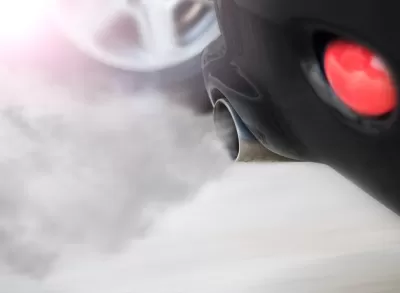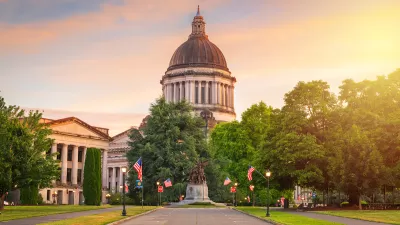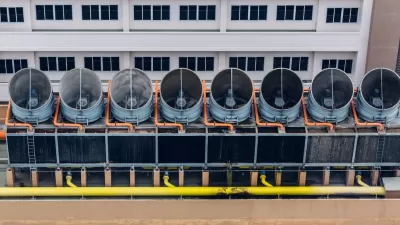The decision vacates a USDOT rule that would have required states to establish emission reduction plans.

A U.S. District Court judge ruled that the U.S. Department of Transportation (USDOT) does not have the authority to issue a recent emissions reduction rule, reports Dan Zukowski in Smart Cities Dive. The lawsuit was brought by the state of Texas. “In a separate lawsuit a group of 21 states filed in Kentucky, the Federal Highway Administration agreed to extend the deadline for states to submit initial CO2 targets and reports until March 29, 2024.”
The argument hinges on Congress’s rejection of a GHG performance measurement when the infrastructure law was first developed, thus “making the Administration’s rulemaking an unlawful attempt to circumvent Congress and force this one-size-fits-all burden upon every state and community across the country,” said Representatives Sam Graves and Rick Crawford in a statement.
Steven Higashide, director of the Clean Transportation Program at the Union of Concerned Scientists, says the rule “adds basic transparency to transportation planning processes that can be hard to understand, and it’s disheartening to see any states fight to make the process more opaque.”
FULL STORY: Texas court strikes down federal rule requiring states to monitor and set targets for highway GHG emissions

Study: Maui’s Plan to Convert Vacation Rentals to Long-Term Housing Could Cause Nearly $1 Billion Economic Loss
The plan would reduce visitor accommodation by 25,% resulting in 1,900 jobs lost.

North Texas Transit Leaders Tout Benefits of TOD for Growing Region
At a summit focused on transit-oriented development, policymakers discussed how North Texas’ expanded light rail system can serve as a tool for economic growth.

Using Old Oil and Gas Wells for Green Energy Storage
Penn State researchers have found that repurposing abandoned oil and gas wells for geothermal-assisted compressed-air energy storage can boost efficiency, reduce environmental risks, and support clean energy and job transitions.

Private Donations Propel Early Restoration of Palisades Playground
Los Angeles has secured over $1.3 million in private funding to restore the Pacific Palisades playground months ahead of schedule, creating a modern, accessible space that supports community healing after recent wildfires.

From Blight to Benefit: Early Results From California’s Equitable Cleanup Program
The Equitable Community Revitalization Grant (ECRG) program is reshaping brownfield redevelopment by prioritizing projects in low-income and environmental justice communities, emphasizing equity, transparency, and community benefits.

Planting Relief: Tackling Las Vegas Heat One Tree at a Time
Nevada Plants, a Las Vegas-based nonprofit, is combating the city’s extreme urban heat by giving away trees to residents in underserved neighborhoods, promoting shade, sustainability, and community health.
Urban Design for Planners 1: Software Tools
This six-course series explores essential urban design concepts using open source software and equips planners with the tools they need to participate fully in the urban design process.
Planning for Universal Design
Learn the tools for implementing Universal Design in planning regulations.
Ascent Environmental
Borough of Carlisle
Institute for Housing and Urban Development Studies (IHS)
City of Grandview
Harvard GSD Executive Education
Toledo-Lucas County Plan Commissions
Salt Lake City
NYU Wagner Graduate School of Public Service





























